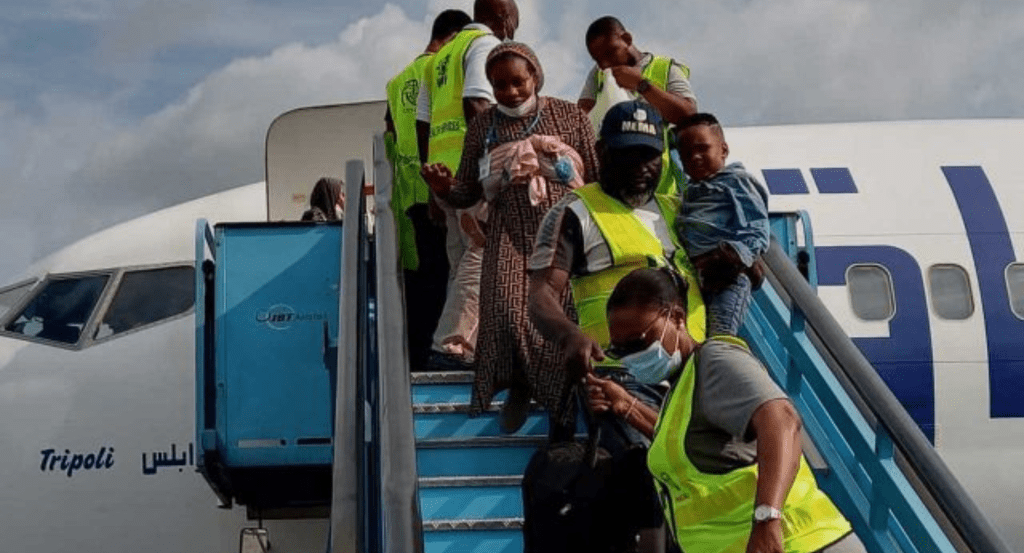On Tuesday, 166 Nigerian migrants returned home from Libya through a voluntary repatriation program facilitated by the United Nations International Organization for Migration (IOM). The returnees, who arrived at Murtala Mohammed International Airport in Lagos, were met by officials from the National Emergency Management Agency (NEMA) and other governmental bodies to assist with their reintegration.
The group of repatriated individuals included women, men, and children, many of whom had been stranded in Libya while attempting to reach Europe. Libya serves as a common transit route for African migrants hoping to cross the Mediterranean, but many become trapped in the country under challenging conditions, with some held in detention centers. The Nigerian government, in collaboration with international agencies like the IOM, has been working to bring back nationals who express a desire to return.
The voluntary repatriation program provides essential support for the migrants, including pre-departure counseling, health checks, and travel documents. Upon arrival in Lagos, each returnee received initial support to help them settle back into Nigeria. The government has put various reintegration measures in place, including counseling and short-term assistance, to help returnees as they adjust to life back home.
NEMA Director Dr. Abdullahi Onimode highlighted the government’s commitment to ensuring the well-being of Nigerian nationals abroad. He stated that the government prioritizes these voluntary repatriation efforts and collaborates closely with international partners to provide safe return opportunities for Nigerians in distress.
The IOM has been an active partner in assisting with the repatriation and reintegration process. As part of its ongoing support, the organization is closely monitoring the conditions of migrants in Libya and will continue to facilitate repatriation for those in need. It has also called for strengthened international cooperation to address the challenges of migration and improve opportunities in Nigeria to prevent dangerous migration attempts.
Since the program’s inception, thousands of Nigerians have been repatriated from Libya, and similar operations are expected to continue as part of Nigeria’s and the IOM’s efforts to manage migration more safely and sustainably.




















